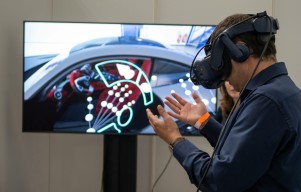
Incheon National University has taken a significant leap into the future by unveiling its groundbreaking Web 3.0 streaming architecture plan. Web 3.0, a paradigm based on blockchain technology, promises advanced functionalities compared to the current Web 2.0, including transparency and decentralized control structures. Despite its potential, implementing Web 3.0 in media streaming has faced challenges such as user experience degradation and compatibility issues with certain operating systems and browsers.
To tackle these issues head-on, a team of researchers, led by Assistant Professor Gi Seok Park from Incheon National University, embarked on a pioneering project. Their findings, released on August 22, 2023, were recently published in Volume 16, Issue 6 of the IEEE Transactions on Services Computing in November-December 2023. The study introduces an end-to-end system architecture tailor-made for Web 3.0 streaming services, utilizing the Inter-Planetary File System (IPFS), a Web 3.0 peer-to-peer (P2P) data storage technology, to enhance service efficiency and elevate user experience.
The Challenges and Solutions
Web 3.0 services have previously been implemented using third-party service providers' application programming interfaces, known as IPFS pinning services. However, these implementations posed performance limitations. To overcome this hurdle, the research team devised a system where they could have complete control over blockchain nodes. They deployed their IPFS nodes directly onto their system and implemented new protocols for content caching and chunk scheduling, allowing nodes to collaborate seamlessly and download data swiftly.
The researchers confirmed their system was compatible with IPFS nodes and functioned seamlessly on IPFS P2P networks. As a tangible outcome of their work, they launched "Retriever," a media non-fungible token (NFT) marketplace developed using Web 3.0 technologies. Retriever not only provided users with the ability to watch video content and ensure data privacy but also proved compatible with multiple mobile devices. Dr. Park, discussing Retriever, stated, "Our service can allow creators to monetize their video content and even sell their video content if they wish to. This is because each content will now be managed as an NFT. More importantly, this entire process will be fair and transparent."
The Real-World Impact
When questioned about the real-world implications of the study, Dr. Park emphasized establishing digital trust among users. According to him, blockchain technology eliminates the need for web services to enforce trust on users. Instead, all transactions will be executed relatively through smart contracts and recorded transparently on the blockchain ledger. He believes this will revolutionize the user experience by fostering trust and fairness in digital interactions.
Dr. Park envisions Retriever and similar Web 3.0 services as the catalysts for a future where creators can seamlessly monetize their content and users can engage in a transparent and trustworthy digital environment. "Our proposed service would establish digital trust from users. Moreover, thanks to blockchain technology, web services will no longer need to force trust on users in the future. All transactions will be made fairly through smart contracts and recorded transparently through the blockchain ledger," he elaborates.
Future Outlook
The launch of Retriever and the success of Incheon University's Web 3.0 streaming architecture plan mark significant strides towards a digital landscape built on trust, transparency, and fair transactions. As Web 3.0 continues to evolve, Incheon National University's research and practical implementations pave the way for a future where the internet becomes a more secure, user-centric, and equitable space. The promising outcomes of this study position Incheon University as a pioneer in integrating blockchain technology and Web 3.0 services, setting the stage for a transformative digital era.
Related Article: 5 Best AI-Driven Tools That Can Help Architects and Designers in 2024


















